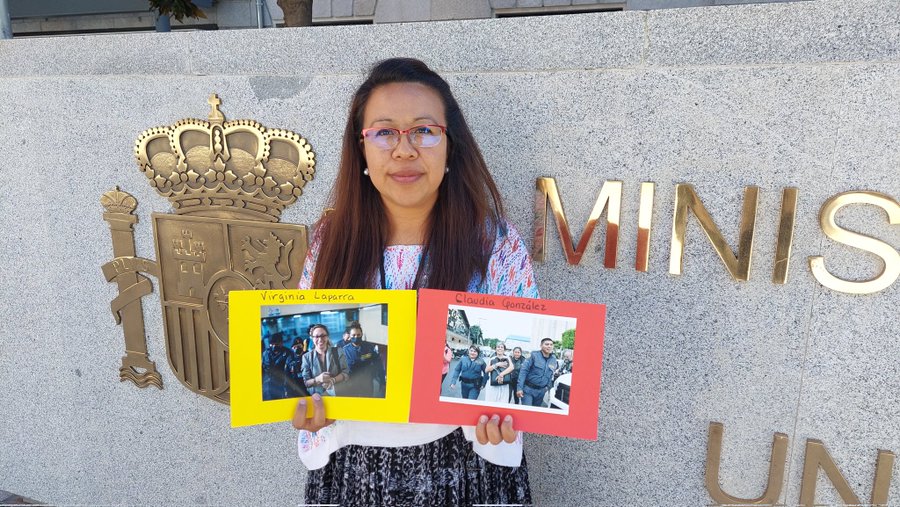Wendy Geraldina López Rosales is a Maya Kaqchikel lawyer and human rights defender. She has worked with the Human Rights Law Firm (Bufete Jurídico de Derechos Humanos) and the Indigenous Peoples’ Law Firm (Bufete Para Pueblos Indígenas), where she undertook specialized litigation on behalf of the rights of Indigenous women who face criminalization for defending Indigenous territory. Ms. López currently undertakes legal work with UDEFEGUA, the Unit for the Protection of Human Rights Defenders in Guatemala. Ms. López spoke with Amnesty Canada campaigner Kathy Price on November 18, 2023.
What brought you to your work defending the rights of women in Guatemala?
My sisters, my colleagues, my friends, and I, myself, have suffered systematic violence at the hands of the State of Guatemala.
I defend human rights precisely because I cannot accept the inequality and lack of opportunities for Indigenous Peoples, for Indigenous women, and the human rights abuses perpetrated against us. According to the last census, only 5 to 6 percent of Indigenous women have access to education. There are so many girls who should be studying and afforded the opportunity for a career. However, they experience violence from a State that undermines them. The number of rapes that take place per year is astonishing. There are so many girls that get pregnant. There is also a huge number of women human rights defenders who are targeted by the State, instead of it protecting us and providing the minimum conditions to guarantee our rights.
I am lucky that I was able to pursue education and speak Spanish. So many Indigenous women do not have that chance and speak their own language, not Spanish. Their voices are ignored. The State discriminates against them and treats them with violence, all because they are Indigenous woman. This must change.
Tell us about the experiences of women you represent, whose cases are emblematic?
One is María Magdalena Cuc Choc. She is a Maya Q’eqchi’ woman, a defender of Indigenous territory in El Estor, in the department of Izabal. Maria Magdalena was arrested, accused of crimes she did not commit, and convicted. All of this is aimed at silencing her. We have taken her case to the Supreme Court.
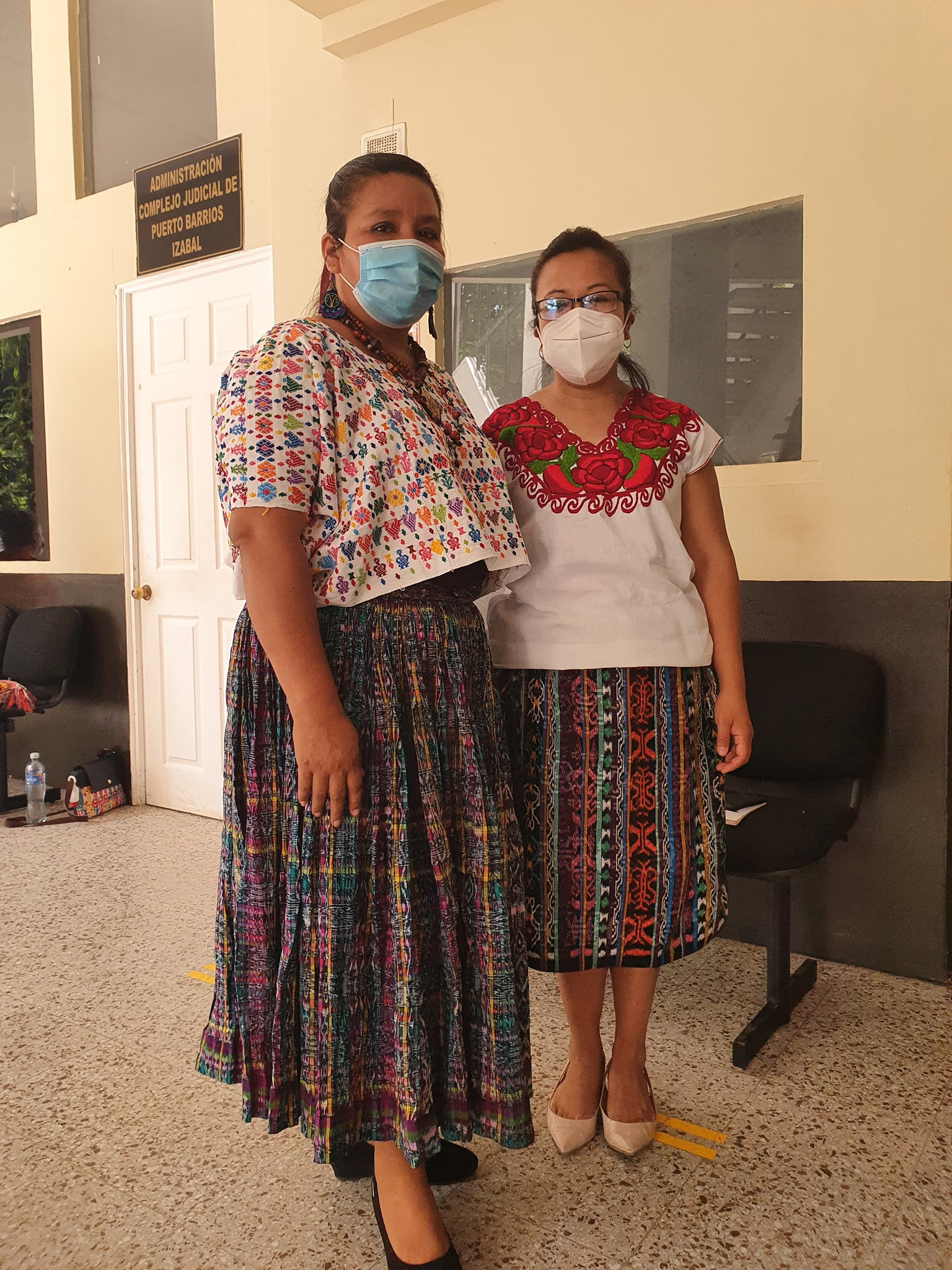
Another woman I represent, who is also the victim of enormous injustice, is Virginia Laparra, a lawyer, a public servant who is being punished for the good work she has done investigating corruption by authorities. Virginia was removed from office and denied her rights. She has now spent more than 22 months in jail in terrible conditions.
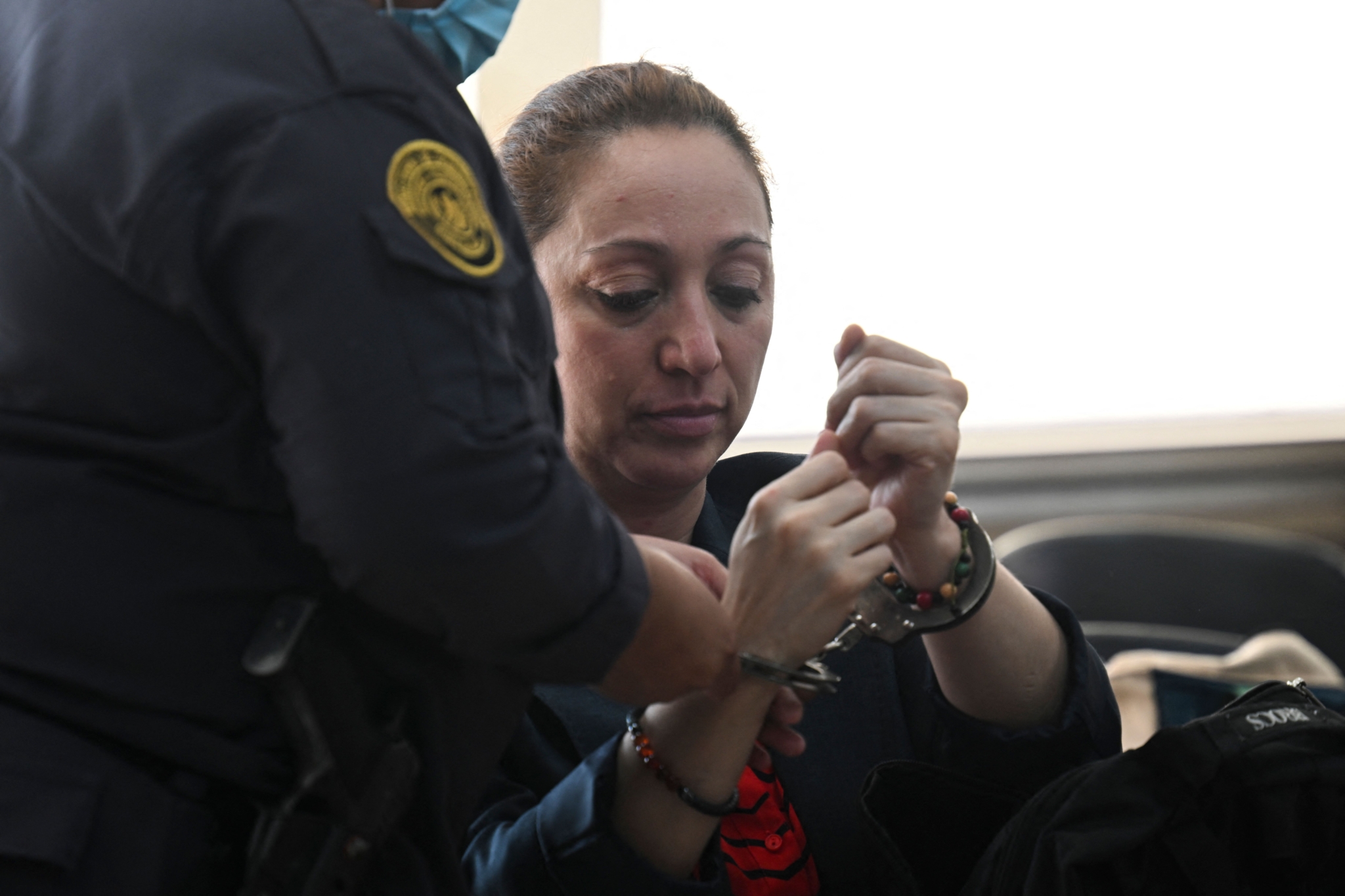
What do the experiences of these two women tell us about the state of justice and gender justice in Guatemala?
It’s not possible to expect any kind of justice, given what is happening. That is why more than 45 justice workers have left the country, and gone into exile. Most of them are women.
Women are under attack. We hear over and over again that our mistake is speaking up instead of staying home and serving a man. The threat is that if we keep denouncing, we will end up in jail like Virginia Laparra. How would the State protect us from that when it abuses our fundamental rights as women and Indigenous women?
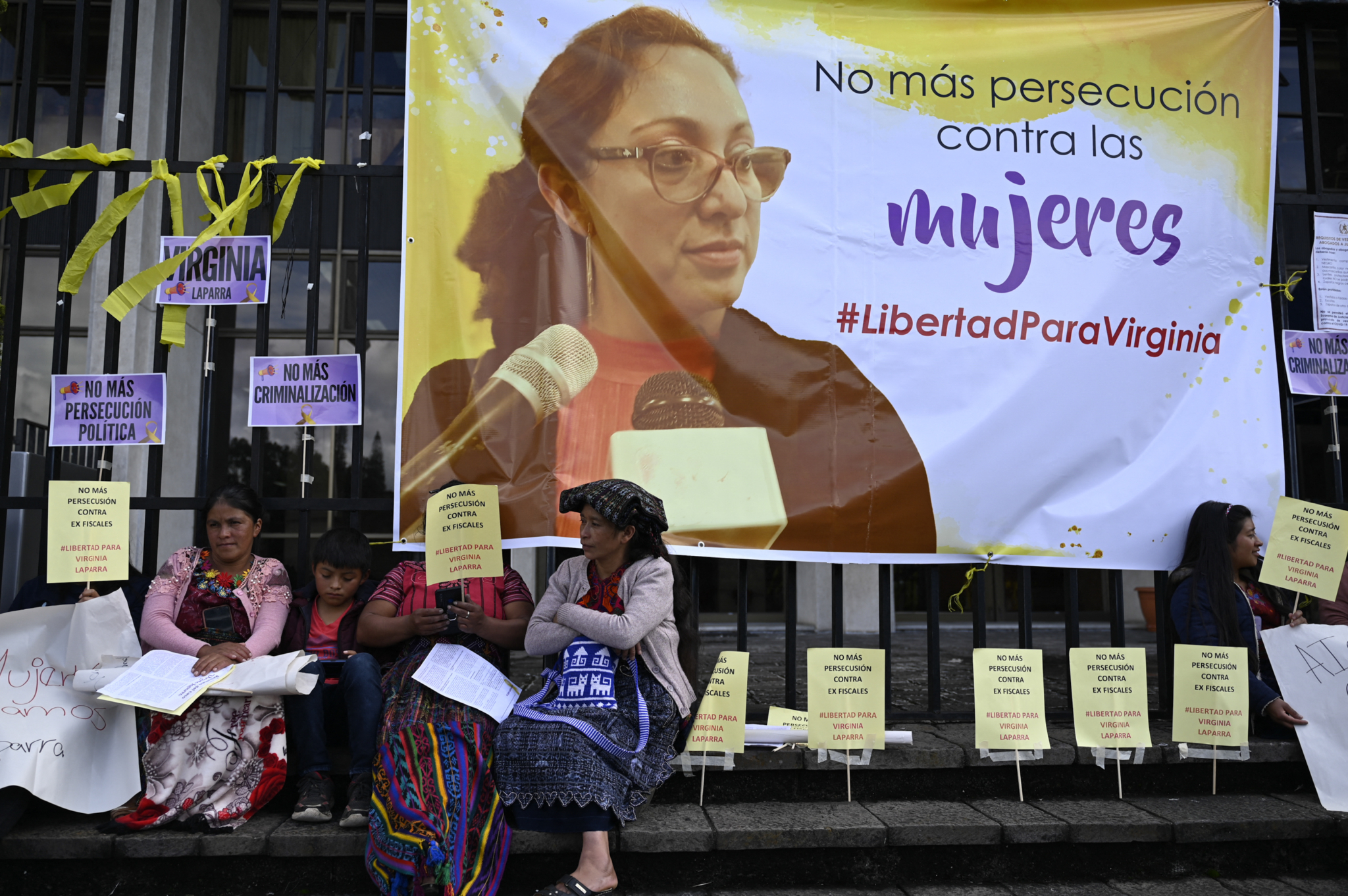
You too are under attack. Can you tell us about that?
Whenever I attend court hearings, I am forced to prove that I am a lawyer to be allowed in. They take my bag and go through it, document by document. That doesn’t happen to non-Indigenous lawyers. Even when I’ve had to use the restroom, they make me use the one assigned for prisoners.
On social media, there are always comments about “the Indian who doesn’t know anything, who can barely speak Spanish.”
At a hearing for Virginia Laparra, I was ordered removed from the court room for no reason other than being an Indigenous woman representing Virginia. The judge issued a complaint against me for non-compliance, for causing disorder because I expressed my disagreement. Now there are two criminal proceedings against me for exercising a person’s right of defense.
Is this an isolated incident?
Recently, I was in court reviewing a file for Virginia’s case. A clerk walked by and said: “There are always inditas [little Indian women] around here”. It’s a pejorative term used to refer to Indigenous women.
I was back again, days ago, following more unjust arrests. Photos were shared on social media and the racism in the comments was outrageous. Added to that, they would not let me see the person I was there to represent, a young woman who had run for member of parliament for the Semilla Party. They would not let me in because they said my ID was not my own. What is the thinking behind that? Apparently, an Indigenous woman cannot also be a lawyer.
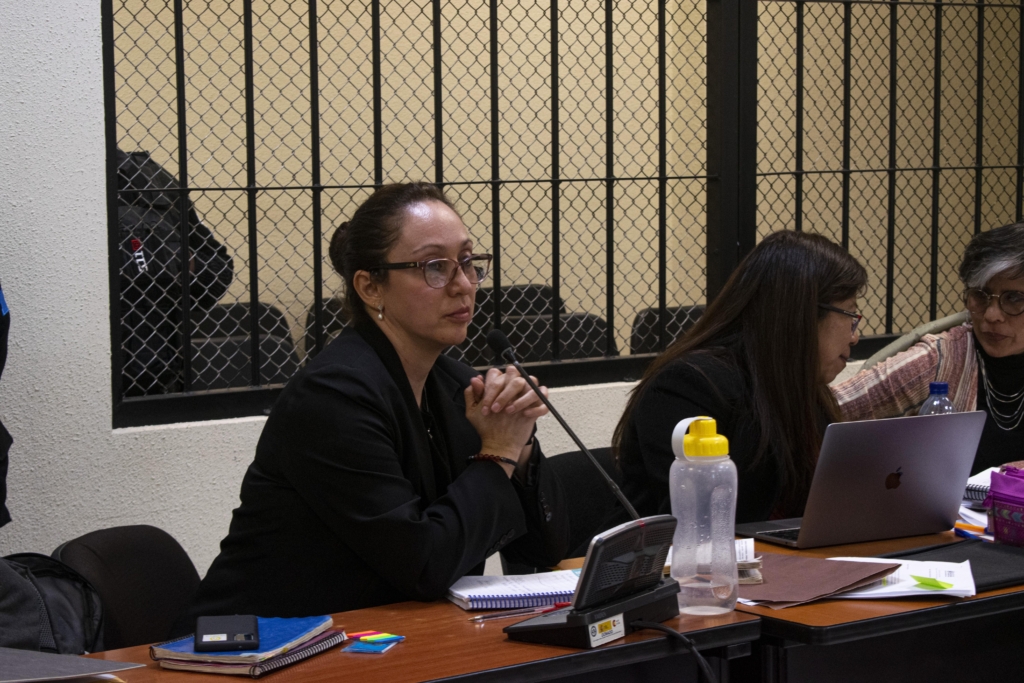
What keeps you going?
The Inter-American Commission on Human Rights has stated that being a woman carries stigma in Guatemala, but being an Indigenous woman is a double stigmatization. The struggle is relentless. We carry a heavy burden. And that is what has made us strong. I am encouraged by the strength of my mother and of many women whom I admire, who have taught me that I must not stay silent or be afraid. I have learnt from all these brave women who have survived, who have endured this constant struggle. I do what I do because I want to contribute to that historical struggle so that one day soon, I can also share this power with my sisters, with the young girls who are coming after me. I want this strength to help them grow. I want the grains of sand that we are each contributing to create better conditions for women, and for Indigenous women.
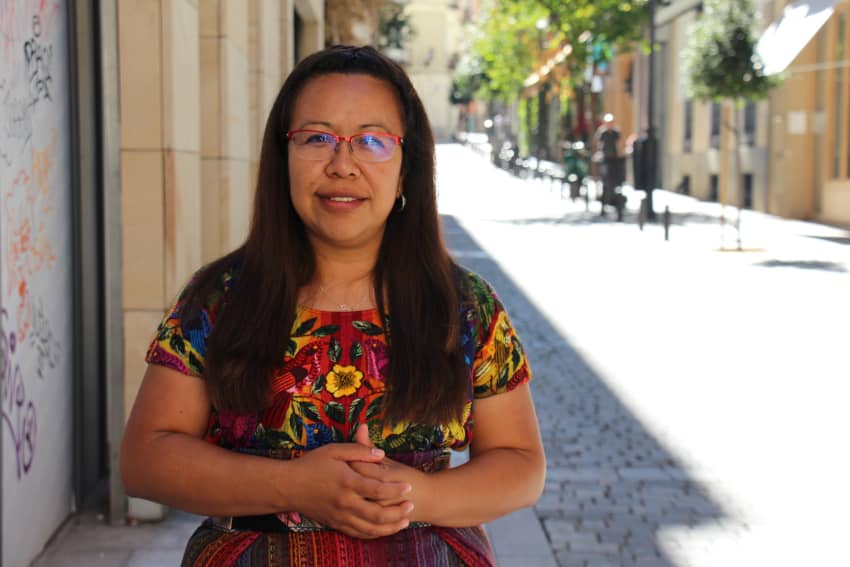
What is your message to us during the 16 Days against Gender Violence and beyond?
I encourage all women not to sit back or be afraid, and to forge relationships of solidarity. I want us to weave together bonds of strength, as our ancestors did, to continue remembering and honoring all those women who did not have the chance to speak up, who are in prison today, who were kidnapped, or murdered in so many of our countries. In Guatemala, women continue to be targets. No matter how loud we need to be, we must all work for women’s voices to be heard, because we can’t be silent ever again. We must remember that if one of us is attacked, the others will defend her, to defend us all, because that’s what it’s all about. Together we are stronger. Together, we will continue the struggle.
TAKE ACTION
Sign this e-action calling on Guatemala to free prisoner of conscience Virginia Laparra
Send a message via this e-urgent action calling on Guatemala to respect Indigenous peoples’ right to peaceful protest amid a clampdown on dissent












